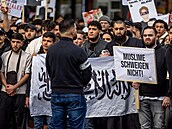The Czech Ministry of Defense is hoping talks on Jan. 23 – 24 with Iraqi government and military representatives will produce a breakthrough for a Czech offer of twenty L-159 fighter planes produced by Aero Vodochody. The manufacturer, which is heading talks on the Czech side, is less concerned about the deal going through: last year it received Kč 25.2 million for simply storing the planes, the daily Lidové noviny (LN) reported on Monday.
For over half a year the Czech government, Defense Ministry and Aero Vodochody (part of the Penta group) have been in negotiations with Iraq to trade the twenty L-159 ALCA attack fighter planes that have seen minimal use. With an Iraqi government delegation in Prague on Monday and Tuesday, an outcome is expected. The ministry can reportedly expect to receive a maximum of Kč 30 million for each plane, though a barter deal for Iraqi oil is an option being discussed.
The Czech offer, however, faces considerable competition from the Hawk light combat and training plane manufactured by BAE Systems of the UK, and the T-50 Golden Eagle, developed and manufactured by Lockheed Martin of the US together with Korea Aerospace Industries and Korea’s Agency for Defense Development. Like the L-159 and the Hawk, the T-50 Golden Eagle serves both as a training plane and light fighter plane but it is the only supersonic model of the three.
According to the boss of Aero Vodochody, Ladislav Šimek, the Iraqis are now leaning more towards buying brand new planes. “Throughout we have consistently spoken about the sale of the planes in storage, but more recently the Iraqi side has said it would prefer new planes,” Šimek told Czech Radio.
Little incentive
But Lidové noviny cited a high-ranking military figure, who asked to remain anonymous, as saying Aero Vodochody actually has little incentive to sell the 20 older L-159s in storage. “The firm’s motivation to sell the planes will not be great because it would lose a guaranteed source of stable income for their storage,” the senior defense ministry official told the daily.
A breakdown of the ministry’s spending shows it paid Aero Vodochody Kč 25.2 million for storage and maintenance of the planes in 2011. Officially, however, the manufacturer denies it would be more advantageous for the planes to remain in storage. “Maintenance of the planes has just one aim: to ensure the possibility to sell them. For Aero it would definitely be better for us for the planes to represent our firm abroad,” Aero Vodochody spokeswoman Tereza Kryšpínová told LN.
Aero Vodochody is the largest aerospace manufacturer in the Czech Republic, mainly focusing on cooperation with leading aerospace manufacturers in international aerostructures projects, including Sikorsky Aircraft Corporation (S-76 model helicopters), Alenia Aeronautica (C-27J Spartan center wing box), Latecoere (Embraer 170/190 subassemblies), Saab (JAS-39 Gripen pylons), Spirit Aerosystems (B767 fixed leading edge kits), and EADS (A320/340 subassemblies). It was privatized in 2007 and bought up by the Czech and Slovak investment firm Penta.
The Czech company’s military program is historically the largest producer of jet training aircraft (L-159 Combat & Training System and L-39/L-59 Sustainment Programs) and a partner to the Czech Air Force, among other national fleets. To date the L-159s are only used by the Czech air force.
Pavel Bulant, head of the ministry’s armaments department, says there’s a good chance the Czechs will clinch the deal to supply the fledgling Iraqi air force. He says his optimism is based on the fact that when Czech Prime Minister Petr Nečas (Civic Democrats, ODS) headed a delegation to Iraq in May 2011, the Iraqi side said they wanted to complete the purchase of light fighter planes within a short period of time.
Up to the US
Aviation specialist and journalist Michal Zdobinský says that in order for the Czech offer to have any chance, the deal would have to have the blessing of the US. “As long as [Defense Minister Alexandr] Vondra has reached an agreement with the US, the sale has a big chance of success,” Zdobinský said recently. According to Lidové noviny, however, “very few believe the American arms industry would let go an order for the national aviation industry.”
Ten days prior to his planned cisit, Iraqi Prime Minister Nouri al-Maliki announced that he would not head the Iraqi delegation to Prague due to a flare in sectarian violence in Iraq since the withdrawal of US troops in December. Iraqi defense minister Saadon al-Dulaymi has travelled to Prague and will hold talks with his Vondra (Civic Democrats, ODS).













